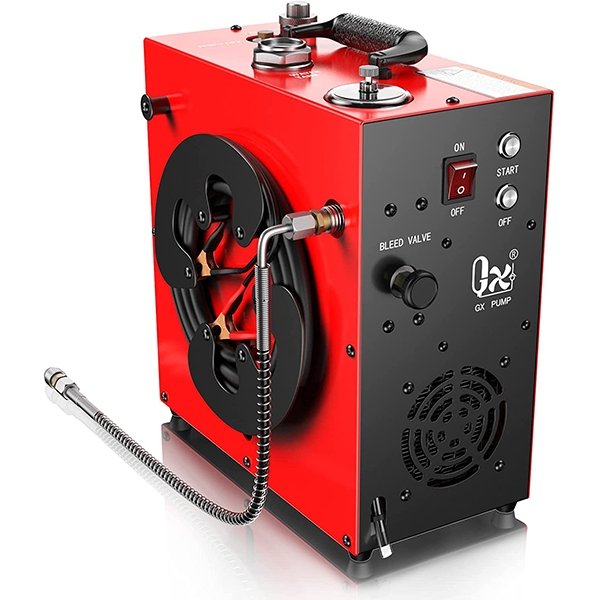No, I live in the Yard Dragon infested region of FL, so no worries here about freezing. And totally agree with you on using plain distilled water; best heat transfer available to us, and won't corrode over time.
- TLDR;
If one is fortunate enough to NOT live in freezing conditions (or keeps their compressor indoors), then distilled water may be preferred due to its superior heat transfer and lower maintenance requirements. (My personal preference)
If one does require antifreeze, propylene glycol is "safer" when ingested, but is more viscous and has less heat transfer than ethylene glycol. So ethylene glycol may be preferred (though more toxic), just keep in mind iEG tends to turn acidic faster than PG (but we're talking years here, not months). With either one, I'd personally check the pH, and if I saw it dropping below 7.0-8.0, I'd do a drain and refill. Details below...
Clarification: I have never used WW personally, only know of it from car/truck forums over the years. It is basically water mixed with alcohol ethoxylate (trade secret on how much, but the MSDS for it says 10-30%) and the main purpose is to cause water to mix with oil (like dish soap).
Is it any better than dish soap for this particular application? I cannot say. There are claims online that it has corrosion inhibitor properties, but I can find nothing about that in my research on alcohol ethoxylate. The only reason I would say it would have a benefit in the small cooling use of these compressors would be that IF it was anti-corrosive or had any lubricity properties (probably nil at best, but then again, this is a TINY cooling system), it would be better than water alone at keeping the system clean.
But does it provide better heat transfer than water alone? I doubt it. I'm sure that just as with either propylene glycol or ethylene glycol, it might actually reduce the transfer of heat. In a system that doesn't seem to be getting much above 100° according to posts above, and remains FAR away from boiling, I would say distilled water alone would be best. Any system that contains glycol would need to be "maintained" as it turns acidic over time. Boiler maintenance companies recommend checking the pH regularly, and adding chemicals as necessary to maintain the pH above 8.0. (For us, the simplest solution would be to drain and refill if one is using either of the two glycols above). But I'd do the same thing with distilled water, personally.
If one lives in an area where freezing is an issue, it boils down to ethylene glycol or propylene glycol. PG is less toxic than EG, if there is any fear of children or pets drinking it (not likely in this closed system, but comes into play with external cooling methods such as the YH compressor owners seem to favor). EG may be more toxic, but it is less viscous, therefore provides better heat transfer. Either one requires "maintenance" to keep the pH high, so a biannual replacement of either is probably in order. (Or at least sampling the pH level from time to time)

